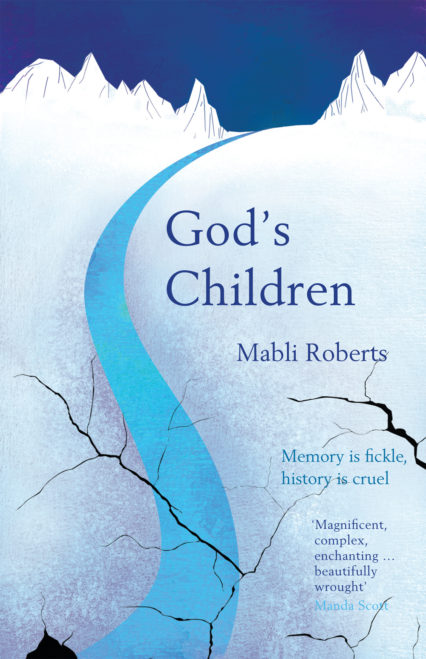Norena Shopland casts a critical eye over the latest title from Honno Press in their review of God’s Children by Mabli Roberts.

In the shadow of Oscar Wilde’s trial for homosexuality, another case was building. Kate Marsden intended, as Wilde had done, to sue for libel over allegations of immoral relationships, but she ran out of money and the case never went forward. In the late nineteenth century, same-sex activity between women was never against the law as it was for men, but women could be ruined if their sexual diversity was publicly known. When numerous accusations about Marsden came to light her reputation as a nurse and missionary suffered.
The real-life Kate Marsden was a formidable figure, travelling 11,000 miles across Serbia searching for a rare yellow flower believed to be a cure for leprosy, and raising funds for a leper’s hospital. Dauntlessly she courted royalty, Empress Maria Fedorovna and Queen Victoria, begging for funds and support which were initially gladly given. Marsden wrote up her great trek in On Sledge and Horseback to Outcast Siberian Lepers (1893) but there were those who claimed the trip never took place, and that she was a charlatan. She founded a charity, the St Francis Leprosy Guild, and later inspired the setting up of Bexhill Museum bringing in many of their original collections. But controversy continued to surround her and her immorality, and she was rejected by the museum committee.
God’s Children (Honno Press) by Mabli Roberts is a fictional account of Marsden’s life as she travels through Siberia to help lepers expelled to a far corner of the frozen wasteland. The core of the book is the arduous trek which sparkles with details so clear that you can almost see the landscapes, and feel the bumps as they are tossed about the sledge. Interspersed are flashes from Marsden’s past, what brought her to this place, and the women who helped her do so, including those who had loved Marsden, sometimes to their own disadvantage.
Lying in a hospital bed at the end of her life, her stroke-ravaged body as useless as the lepers she sought to help, Marsden is visited by the ghost of her great love Rose, who acts as commentator and interviewer. Mabli Roberts lets Marsden speak for herself so parts read almost like an autobiography, and we are impressed and touched by the women’s steadfast determination to raise money for a leper hospital. However, Rose wants answers that Marsden is reluctant to give, and we begin to wonder if we are being fooled by Marsden’s pious account. It is through Rose that we learn that Marsden was perhaps not as loved as a nurse as we are led to believe, and questions of financial irregularities also surface. Did she have a real affection for Nell and Jessy who funded most of her work, or did she simply use them and their money, not just for the hospital but for herself?
The relationship between Marsden and Rose is touching told, and it haunts the story of God’s Children. The story of being outcasts, and is this theme that dominates the book. The lepers, gay love, the social unacceptability of dressing in men’s clothes, and even travelling alone, the great ‘crime of being a woman in a man’s arena’. Comments about the solitude of lepers and historical same-sex relationships are interchangeable, “enforced solitude, often separated from loved ones… such things are hard to bear”. And she questions God, ‘are there loves that are wrong? How can this be so? Why would God equip us with the ability to care for and cherish someone if it were wrong for us to do so? Surely real love can never be a malformed thing?’ Marsden’s insistence that lepers should be accepted as God’s Children is a veil over the true case that everyone should be accepted as God’s children.
Despite the fact that Marsden constantly cites God as her driving force and invokes his name often in God’s Children, religion is a shadowy presence in the book, always just out of reach and sometimes ominous. From her sledge, Marsden could see the lights of towns that must contain churches where she can pray, but the lights turn out to be nothing more than the glint of wolves’ eyes.
In God’s Children, Robert’s writing flows beautifully, even if the narrative does jumps back and forth which may not be to everyone’s taste, but the sections tend to be themed so complement each other. And Marsden’s confession to Reverend Alexander Francis of her love for women seems a little awkward and not in keeping with her character, but these minor points aside God’s Children is a great read. As you glide over the words you hardly notice the enormous wealth of well-placed detail which brings scenes vividly to life.
And what of Marsden, do we believe her? As she herself said, ‘let history make of me what it will’.
God’s Children by Mabli Roberts is published by Honno Press and is available now.
Norena Shopland is an LGBT+ writer and historian, author of Forbidden Lives: LGBT stories from Wales (Seren Books) and contributor to Wales Arts Review.











